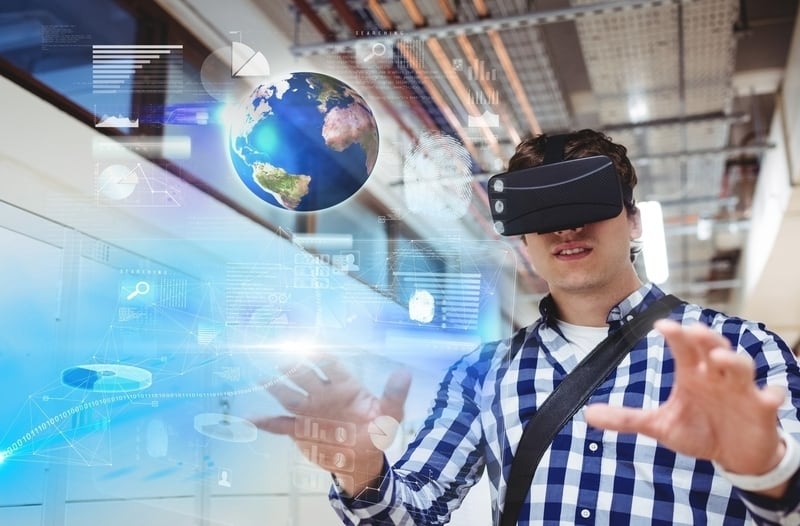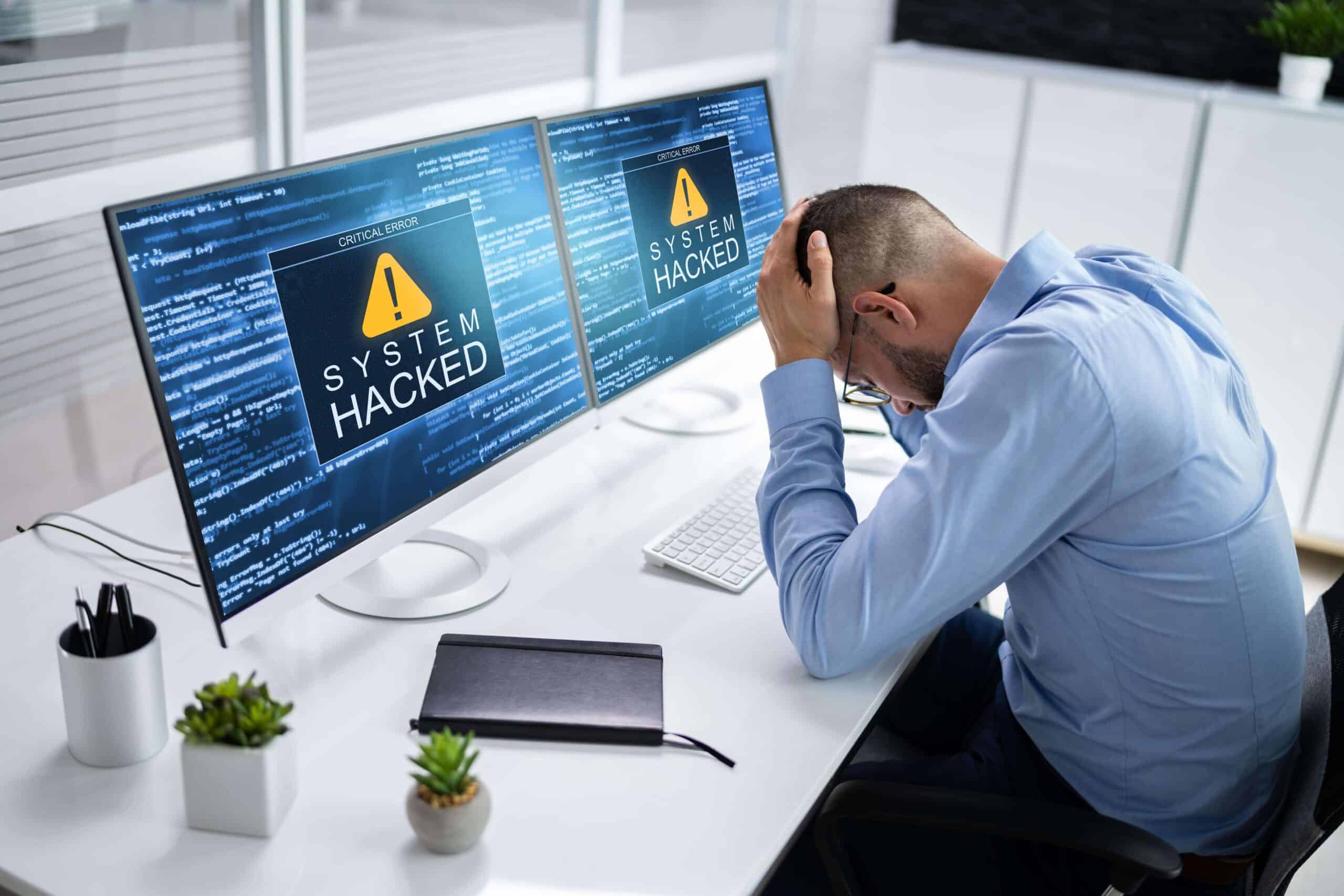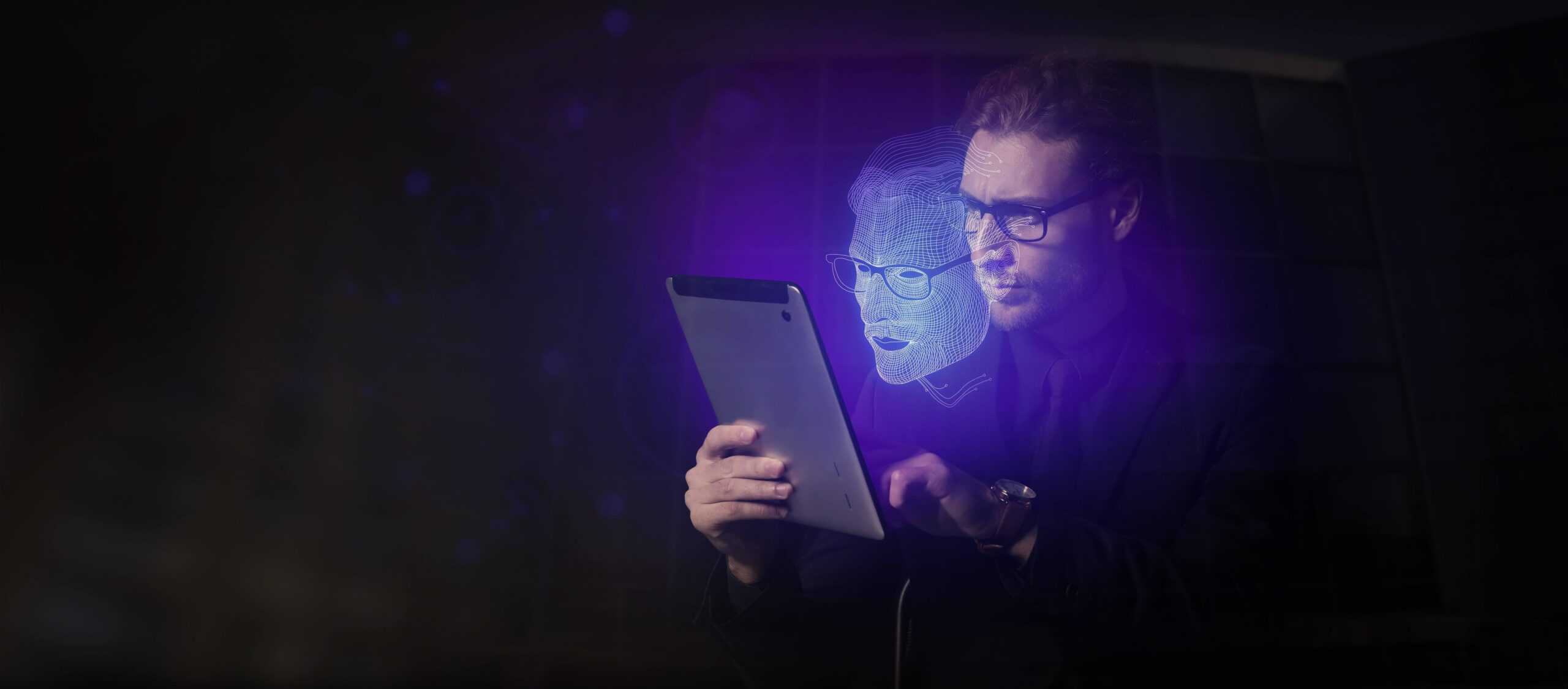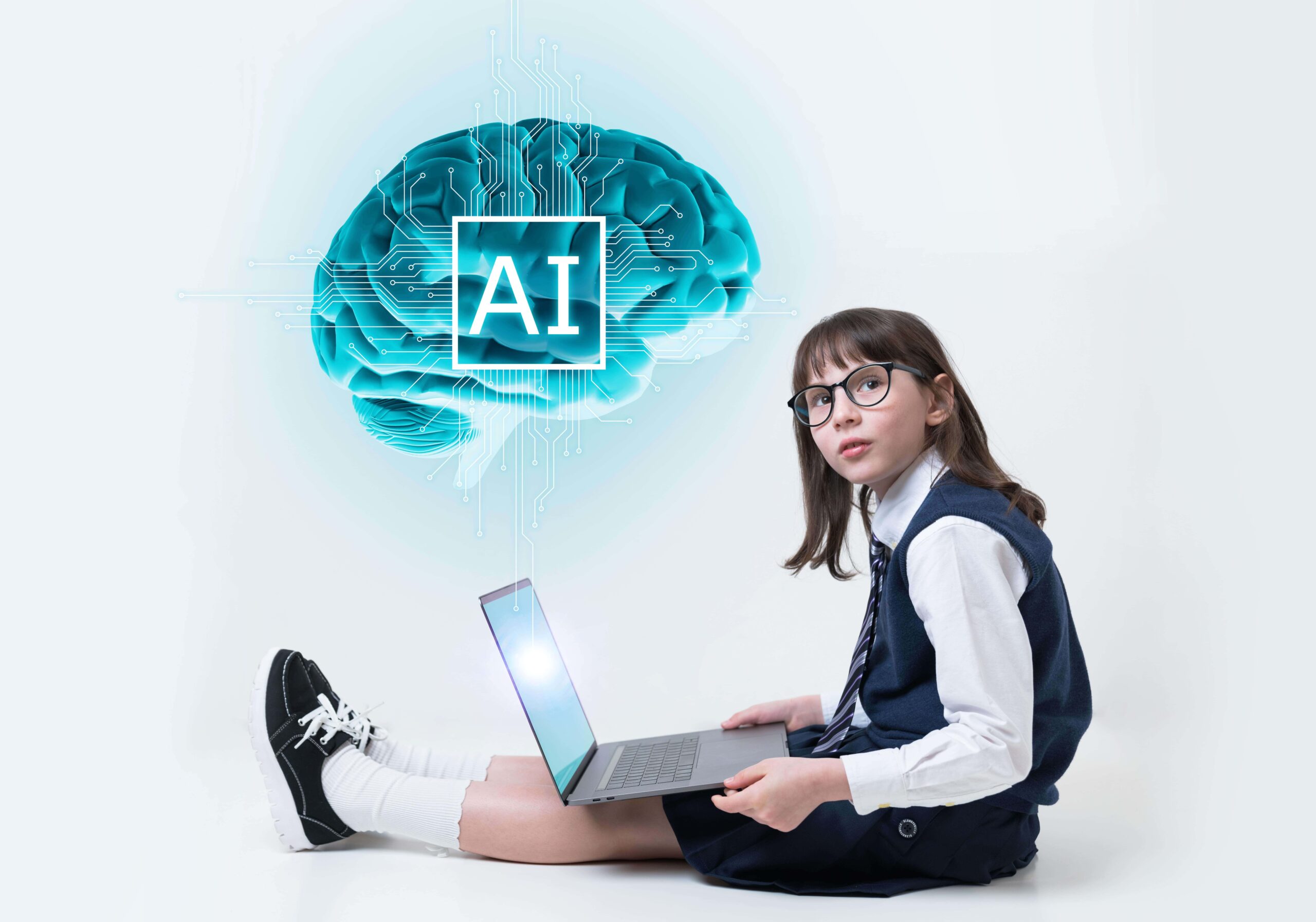- Augmented reality platform helps students build their own learning content and collaborate in real-time
- EON Reality provides AR-based safety training for chemistry lab emergencies
- eHospital technology helps university students practice clinical skills
- Machine learning and facial recognition enable students to take online exams
- Packback AI tool helps improve writing and class discussion skills
- The future of transformational technology in higher education
Augmented reality (AR), virtual reality (VR) and machine learning in higher education have garnered quite a bit of interest in the past couple of years. But now that the pandemic necessitates a fast and furious increase in remote and virtual learning, these transformational technologies are swiftly moving into the education mainstream, finding more and more ground-breaking applications. Through digital ecosystems, the classrooms of the future will provide hyper-immersive experiences in increasingly experiential learning environments. And with the use of these transformational technologies, teaching and learning remotely will increasingly resemble ‘personal’ interaction in places and situations where – as a result of the pandemic – there is none.
Augmented reality platform helps students build their own learning content and collaborate in real-time
A team led by Indiana’s Purdue University has developed MetaAR, an augmented reality platform that enables students and teachers to collaborate remotely. To test the platform, Karthik Ramani, professor of mechanical engineering at the university, built a small city model, specifically designed to teach students the basics of circuit boards. The tiny streets and buildings were made from wooden pieces and fitted with conductive material that illuminates as soon as a student correctly assembles a circuit. The MetaAR software was used to duplicate the city model with its streets and buildings in 3D and to develop instructions on how to build the city. Via AR on their tablets, the students are shown how to position the pieces and alerted when the pieces are incorrectly positioned. The collaborative platform is MetaAR’s most impressive creation, however. It allows instructors to monitor each student’s work in real-time without being in the same classroom. It enables students to collaborate in real-time, give each other tips and feedback and even interact with each other’s work, irrespective of where they are physically located. Using the students’ tips and solutions, the AR can instantaneously be updated by the instructors. “Using our technology platform, any instructor can easily train on MetaAR to create their own kits and lesson plans and start collaborating in a virtual classroom,” says Ramani.
EON Reality provides AR-based safety training for chemistry lab emergencies
VR and AR are also proving very useful in lab safety training. EON Reality, a multinational VR and AR software developer in Irvine, California, has spent two decades developing education and industry solutions, supporting devices from head-mounted displays and mobile devices to large screens. With over 20 locations throughout the world, EON Reality offers the largest AR/VR training library with more than 8,000 applications and a whopping 40 million users worldwide. EON Reality has been working closely with higher education institutions for years to develop immersive interactive learning experiences. The company has now also developed VR chemistry lab safety training modules for universities. Wearing VR headsets, students and staff can expand their knowledge and train for emergencies, avoiding potential accidents and related financial implications. EON Reality’s Virtual Trainer provides safety- and prevention training for various chemistry lab emergencies. The module helps train people in the prevention and control of chemical hazards, and EON-XR enables students to learn remotely as well. EON Reality has already prepared millions of students and employees for the future and has proven to be a valuable addition to – and even a replacement of – traditional training and teaching methods. EON-XR modules cover everything from lab sciences and engineering to architecture, advanced mathematics, and even studio design and conceptual photography.
eHospital technology helps university students practice clinical skills
The pandemic has led to severely limited access to hands-on learning experiences for medical students, but EDPI University in South Carolina has developed groundbreaking simulation tools to help its students get all the ‘practical’ clinical experience they need. The eHospital tech enables students to engage in scenarios they would experience in a real hospital. In these virtual environments, simulating medical labs, emergency rooms and operating rooms, they can practice treating patients and dealing with emergencies and learn how to set up IV pumps, take blood pressure, and operate devices like respirators. eHospital even enables students to go for a virtual ride on a medical helicopter or an ambulance. Not only have the simulation tools enabled continued learning during the lockdowns, they will also be of continued value once actual physical training at campuses resumes. “This has been extremely beneficial during COVID-19. It’s a really cool program, and the students who are preparing for the clinical environment can actually go into a simulated, real lifelike hospital setting and field setting for EMS and practice patient care and procedures. They can practice procedures that are normally very risky, and this allows them to have an unlimited amount of practice in a fun environment,” says Steven Moring, paramedic program director at ECPI University.
Machine learning and facial recognition enable students to take online exams
With lockdowns and social distancing measures in place all over the world, the logistics and mechanics of organising and taking exams has become a complicated undertaking. More and more educational facilities are now moving towards AI-based or proctored exams – timed exams that you take while proctoring software monitors your desktop, webcam video and audio. The recorded data is then transferred to a proctoring service for review. The technologies that ensure the smooth running of this process and establish a cheat-proof examination environment include machine learning and advanced facial recognition tech, developed by neuroscientists and engineers. The software developed by tech company Better Examinations, for instance, can automatically mark maths exams and multiple choice answers, but it can also detect the identity of the person taking the exam, and even identify behavioural patterns that could be indicative of cheating attempts. The Better Examinations program ensures that internet access or the use of certain apps during the exam is temporarily blocked. Piero Tintori, owner of the company, says: “We had 60 organisations from all over the world contact us out of the blue, who wanted to run exams online in May and June. Everything from universities, to professional organisations, to schools.”
Packback AI tool helps improve writing and class discussion skills
More and more universities and colleges are implementing AI tools to help their students better engage during online class discussions, spark curiosity and creativity, foster critical thinking, and improve writing skills. The technology developed by AI software company Packback uses natural language processing and offers students instant feedback on how to improve their skills. Using Packback, students are taught how to ask great questions and are coached on their critical thinking skills as they formulate responses to questions. Packback also gives positive feedback, to encourage students and let them know they’re on the right track. The tool is a valuable resource for educators as well, as it helps them pinpoint which students require academic support or encouragement to engage with the class discussions. “We particularly work well in large classes or online classes where student engagement and high-quality assessments around critical thinking can be challenging, and actually allow instructors to grade for critical thinking and curiosity (typically instructors use our service for 10-20% of their grade as coursework). Students go through a highly structured curriculum of asking and answering questions to each other and conduct rigorous academic discourse. All of the discussion is peer-driven,” says Kasay Gandham, one of the Packback founders. “Many interesting ideas were inspired by discussions on PackBack. Dr. Brandon Chicotsky from John Hopkins University and Professor Martin Schray from Illinois Institute of Technology authored ‘living textbooks’ based on content from their communities. Some instructors write recommendations for jobs or medical schools based on how students demonstrate critical thinking on the Packback platform. And some departments used student portfolios on Packback to grant scholarships”, writes Amit Chowdhry for Forbes.
The future of transformational technology in higher education
Transformational technology has given rise to a generation of learners who have never known life without a computer, and tech advancement seems to happen at ever increasing speeds. But who could have predicted that higher education would undergo such a sudden paradigm shift – with virtual, remote teaching bursting onto the scene – as a consequence of a pandemic? And yet, here we are, with every aspect of college and university faculty, students, staff, and operations forever changed. In the decade ahead, increasingly advanced technologies will enable an even greater transformation in teaching methodologies and curriculum and, hopefully, allow education systems to emerge from the crisis more prepared for and resilient to potential disruptions in the future. We do need to keep in mind, however, that for all the incredible ways in which technology seems to have ‘saved the day’ for learning during the pandemic, none of these developments will ever be able to replace the vivid, inspiring college and campus life as we knew it only such a short while ago.




